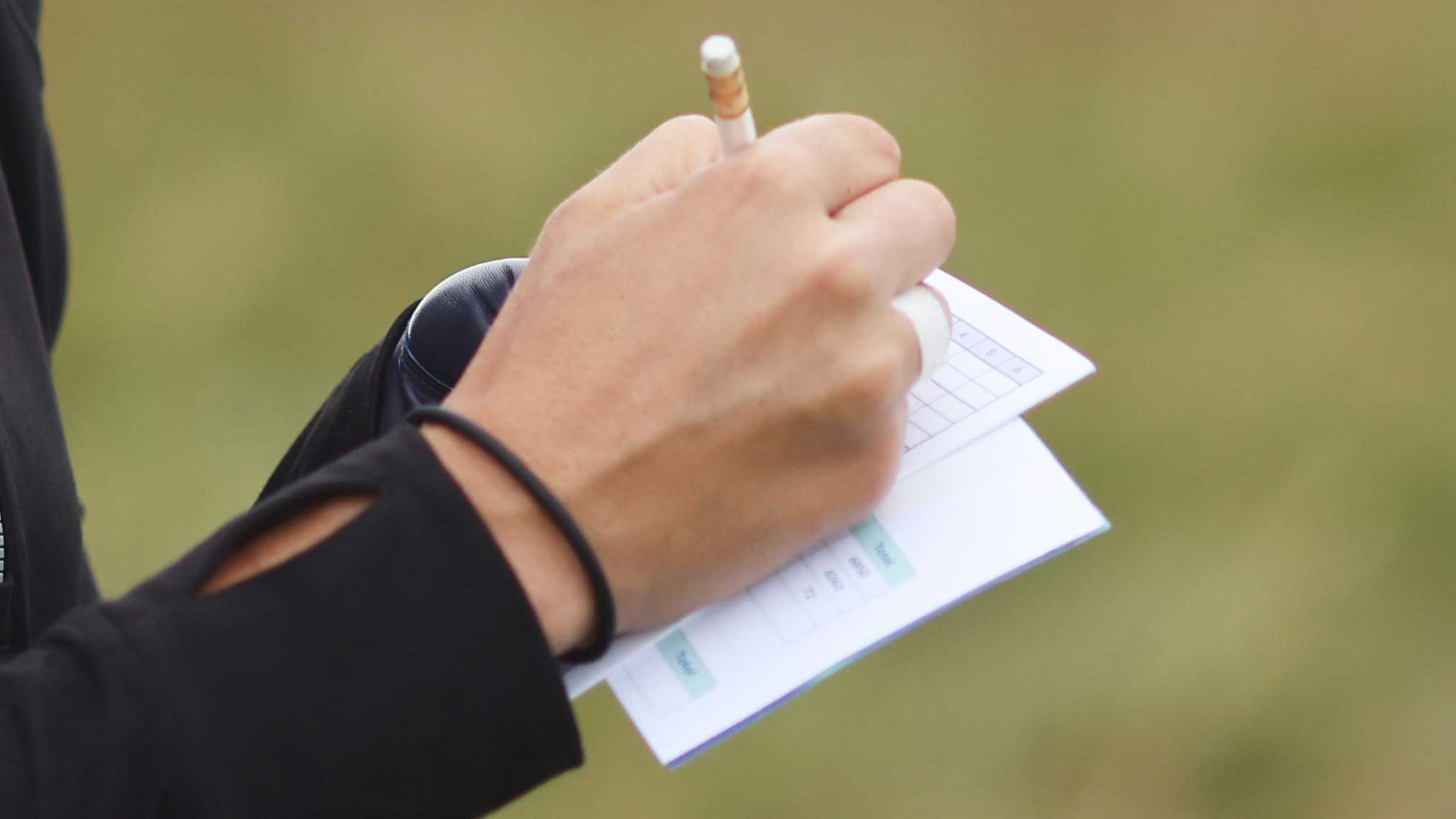Golf is meant to be an objective game.
A stroke is a stroke. Your score is your score.
Clarity over vagary. That’s the ethos.
Funny, then, how the first tee is often grounds for squishy, adolescent uptalk.
What do you play to?
Oh, um, I’m like . . . an 11?
According to the latest figures from the United States Golf Association, 2.86 million golfers in this country carry a handicap. That’s up from 2.4 million in 2014, but it’s still only 12 percent of the total American golf population.
The governing body would like to see the number grow. They’re serious about handicaps, so much so that they’ve trademarked the term (officially, it’s the Handicap Index, thank you very much). They’ve made it easier than ever to establish one (you need scores from only 54 holes, in any combination of 9 or 18 holes, including past rounds). And they’ve kept it relatively affordable. The average fee is $55 a year, which is less than you probably spent on streaming platforms last month. You can start the process here.
But the question here is not whether you owe the USGA your business.
The question is whether you owe it to your fellow golfers to carry a handicap.
The short answer is usually, yep, you do.
The slightly longer answer is that even in the most laidback outings, most golfers want to play with something on the line, whether it’s a beer, a buck or bragging rights. If you want to be part of that good, clean, fun, etiquette calls on you have an index. It’s fairer and more enjoyable for everyone. Saying I’m, um, like an 11 doesn’t cut it because there is, um, no such thing.
Of course, nothing requires you to play for any stakes at all. It’s not an etiquette violation to opt out of a match on the first tee. But it does verge on anti-social, and you risk being perceived as a ninny or a killjoy.
That might not matter to you. The Etiquetteist just thought you should know.
The right to play in friendly matches is not the only argument for carrying a handicap. There are plenty of pragmatic reasons. You’ll need an official index if you want to play in any number of club events. You’ll also want one if you’re headed overseas, where many courses require it. Some enforce a maximum handicap (at the Old Course in St. Andrews, that maximum is 36), which has less to do with mandating a certain skill level than it is about ensuring that golfers know how to move around a course and play at a reasonable pace.
Oh, and having a good handle on your handicap will also give you a good idea of what tees you should be playing.
In that sense, carrying an index is often less about etiquette than it is enjoyment. Not bothering to have one is like fudging a hand in solitaire. The only one you’re cheating is yourself.
